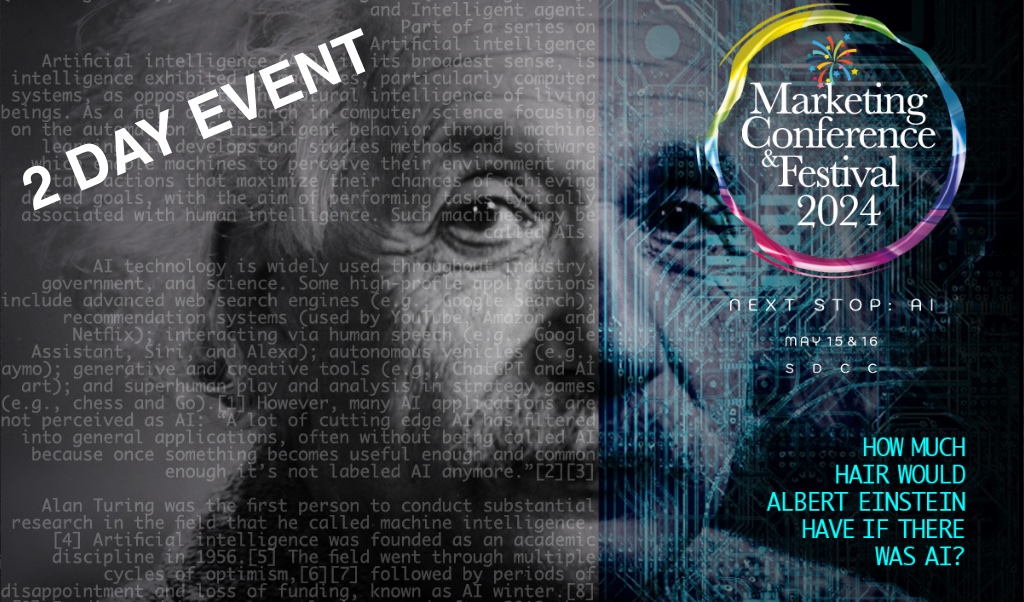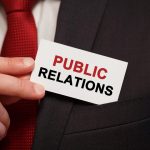By The Malketeer
In recent years, Artificial Intelligence (AI) has become a pivotal force across industries, reshaping traditional approaches and propelling innovation.
Yet, in the spheres of marketing, advertising, and public relations (PR), misconceptions, fears and lingering hesitations persist.
Let’s debunk these myths and explore why embracing AI tools is paramount, backed by research, data, and real-world examples.
Myth #1: AI Will Replace Human Creativity
Contrary to popular belief, AI isn’t a threat to human creativity; it’s a catalyst for innovation.
Research by Adobe reveals that 61% of creatives believe AI will enhance their jobs, not replace them.
For instance, Snickers utilised IBM Watson’s AI to create ad campaigns, boosting engagement by 50%.
This demonstrates AI’s capacity to augment human creativity rather than supplant it.
Myth #2: AI Is Expensive and Complex to Implement
While initial investments may seem daunting, the long-term benefits are significant.
According to McKinsey, companies using AI for sales and marketing have seen a 50% increase in leads and appointments, along with a reduction of up to 70% in call time.
Moreover, AI tools like HubSpot and Canva offer user-friendly interfaces, making adoption more accessible for businesses of all sizes.
Myth #3: AI Is a Threat to Jobs
Research by PwC suggests that AI will create more jobs than it displaces, with a net gain of 2.3 million jobs by 2030.
For example, Publicis Groupe, a leading marketing and communications company, implemented Marcel, an AI platform that connects over 80,000 employees worldwide, fostering collaboration and innovation.
This exemplifies how AI can empower employees and drive organisational growth.
The Pivotal Importance of Adapting to AI Tools
Adapting to AI tools isn’t just beneficial—it’s imperative for staying ahead in today’s intensely competitive landscape.
Enhanced Personalisation
Research by Epsilon found that 80% of consumers are more likely to make a purchase when brands offer personalised experiences.
AI-powered personalisation tools like Netflix’s recommendation engine and Spotify’s Discover Weekly playlist demonstrate the effectiveness of tailored content in driving engagement and loyalty.
Improved Targeting and Segmentation
According to Salesforce, 63% of consumers expect personalised engagement based on their past interactions with a brand.
AI-driven targeting and segmentation tools, such as Facebook’s Lookalike Audience and Google’s Custom Intent Audiences, enable marketers to reach the right audience with precision and relevance.
Predictive Analytics
A study by Forrester Research found that companies using AI-driven predictive analytics experienced a 73% increase in sales.
Salesforce’s Einstein Analytics and IBM’s Predictive Customer Intelligence are prime examples of how AI can forecast consumer behaviour, optimise marketing strategies, and drive revenue growth.
Optimised Content Creation
AI-powered content creation tools, like Wordsmith and Grammarly, can generate personalised email campaigns, blog posts, and social media content at scale.
This not only saves time and resources but also ensures consistency and quality across multitude channels.
Real-Time Insights and Performance Tracking
Research by Aberdeen Group reveals that businesses using AI for marketing analytics achieved a 9.4% increase in revenue year-over-year.
AI-powered analytics platforms, such as Google Analytics 360 and Adobe Analytics, provide real-time insights into campaign performance, enabling marketers to iterate and optimise strategies in real-time.
AI Tools of Fundamental Importance
Numerous AI tools have become indispensable assets in marketing, advertising, and public relations.
Chatbots and Virtual Assistants
Bank of America’s virtual assistant, Erica, has handled over 100 million client requests, demonstrating the effectiveness of AI in enhancing customer service and engagement.
Predictive Analytics Platforms
Domino’s Pizza utilised AI-driven predictive analytics to increase sales by 12% through targeted promotions and personalised offers.
Natural Language Processing (NLP) Tools
The Associated Press uses Automated Insights’ Wordsmith platform to generate thousands of news articles each month, demonstrating AI’s capacity to streamline content creation and delivery.
Programmatic Advertising Platforms
Coca-Cola achieved a 18% increase in return on advertising spend (ROAS) by leveraging AI-driven programmatic advertising platforms like the Trade Desk and MediaMath.
Social Media Listening Tools
Starbucks utilises social media listening tools like Brandwatch to monitor customer feedback and sentiment in real-time, enabling them to adapt marketing strategies and product offerings accordingly.
The myths surrounding AI in marketing, advertising, and PR are easily debunked by research, data, and real-world examples.
Embracing AI isn’t just a choice; it’s a necessity for driving innovation, enhancing efficiency, and staying competitive in today’s dynamic landscape.
The time to adapt to AI is now—those who hesitate risk being left behind.
There’re now more reasons to sign up for the Malaysian Marketing Conference & Festival 2024, and explore infinite possibilities from AI.
MARKETING Magazine is not responsible for the content of external sites.









